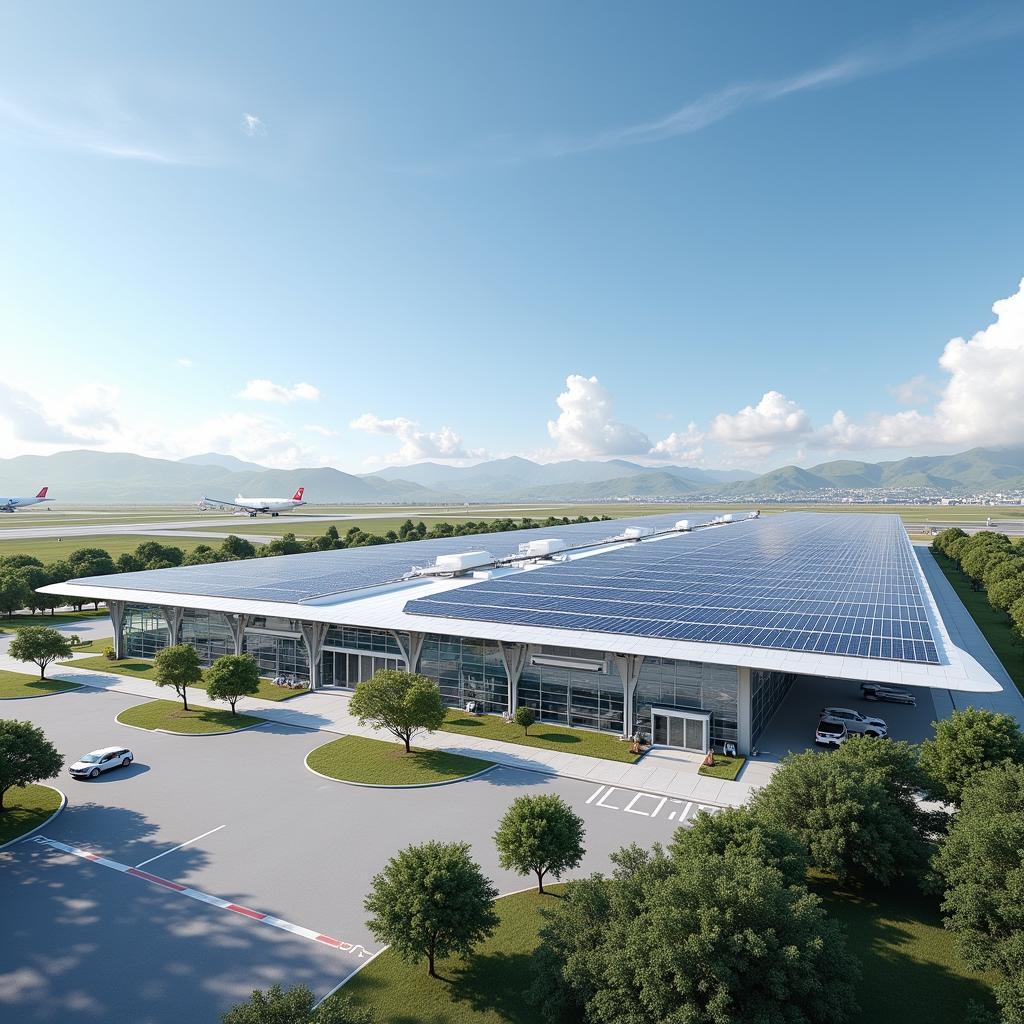The Airport Cooperative Research Program (ACRP) stands as a beacon of innovation within the bustling world of aviation. This federally funded program, sponsored by the Federal Aviation Administration (FAA), is dedicated to finding practical solutions to the multifaceted challenges faced by airports across the United States. But what exactly does ACRP entail, and how does it impact the air travel experience for millions of passengers each year? Let’s delve into the fascinating world of airport research and explore the significant role ACRP plays in shaping the future of aviation.
What is the Airport Cooperative Research Program (ACRP)?
Established in 2003, ACRP serves as a critical link between research and real-world application in the aviation industry. It operates under the Transportation Research Board (TRB) of the National Academies of Sciences, Engineering, and Medicine, bringing together top minds from various disciplines to tackle the most pressing issues facing airports.
ACRP’s mission is crystal clear: to generate practical and readily implementable research findings that enhance airport capacity, safety, efficiency, and environmental stewardship. This means developing solutions that not only improve the operational aspects of airports but also elevate the passenger experience.
How Does ACRP Work?
ACRP follows a well-defined research process that ensures its projects are relevant, impactful, and responsive to the evolving needs of the aviation industry.
Here’s a step-by-step breakdown:
- Identifying Challenges: ACRP begins by identifying critical airport-related challenges. This involves gathering input from a diverse range of stakeholders, including airport operators, airlines, government agencies, and passenger advocacy groups.
- Soliciting Proposals: Once key challenges are identified, ACRP issues calls for research proposals from universities, research institutions, and private companies specializing in aviation-related fields.
- Selecting and Funding Projects: ACRP rigorously evaluates submitted proposals, selecting those with the highest potential for producing practical and impactful results. Selected projects receive funding to conduct their research.
- Conducting Research and Disseminating Findings: Researchers meticulously conduct their studies, adhering to the highest scientific standards. ACRP facilitates the dissemination of research findings through comprehensive reports, peer-reviewed publications, conferences, and online resources.
Key Focus Areas of ACRP Research
ACRP’s research agenda encompasses a wide range of topics critical to the effective functioning and future development of airports. Some of the key focus areas include:
- Airport Planning and Design: This area focuses on optimizing airport layout, infrastructure, and capacity to accommodate future growth in air travel demand.
- Airport Operations and Management: Research in this area addresses challenges related to airfield safety, passenger and baggage processing, ground handling, and overall operational efficiency.
- Airport Security: ACRP plays a vital role in developing and evaluating innovative security technologies and procedures to enhance passenger safety and prevent security breaches.
- Environmental Sustainability: With a growing emphasis on reducing the environmental footprint of aviation, ACRP supports research on sustainable airport design, noise abatement, and reducing emissions.
 Sustainable Airport Design Featuring Solar Panels
Sustainable Airport Design Featuring Solar Panels
Impact and Benefits of ACRP
The Airport Cooperative Research Program has had a profound impact on the aviation industry, leading to tangible improvements in airport operations, safety, and sustainability.
Here are some notable benefits:
- Enhanced Safety: ACRP-funded research has resulted in the implementation of new safety procedures, technologies, and training programs that have significantly reduced accidents and incidents at airports.
- Improved Efficiency: Research on airport design, passenger flow, and baggage handling has led to streamlined processes, reduced wait times, and increased overall airport capacity.
- Reduced Environmental Impact: ACRP has been instrumental in promoting sustainable practices within the aviation industry. Research on noise reduction, alternative fuels, and energy-efficient airport design is paving the way for a greener future for air travel.
Frequently Asked Questions (FAQs)
1. Who can submit a research proposal to ACRP?
ACRP welcomes proposals from universities, research institutions, private companies, and individuals with expertise in aviation-related fields.
2. How are ACRP projects selected for funding?
Project proposals undergo a rigorous review process by a panel of experts who evaluate their relevance, technical merit, and potential impact on the aviation industry.
3. Where can I access ACRP research reports?
ACRP research reports and other publications are freely available to the public on the TRB website and the ACRP website.
Need Help Navigating the World of Airport Research?
Our team of aviation research experts is here to assist you. Contact us at 0904826292 or email us at research@gmail.com for personalized guidance and support. You can also visit our office located at No. 31, Alley 142/7, P. Phú Viên, Bồ Đề, Long Biên, Hà Nội, Việt Nam. We’re available 24/7 to answer your questions.